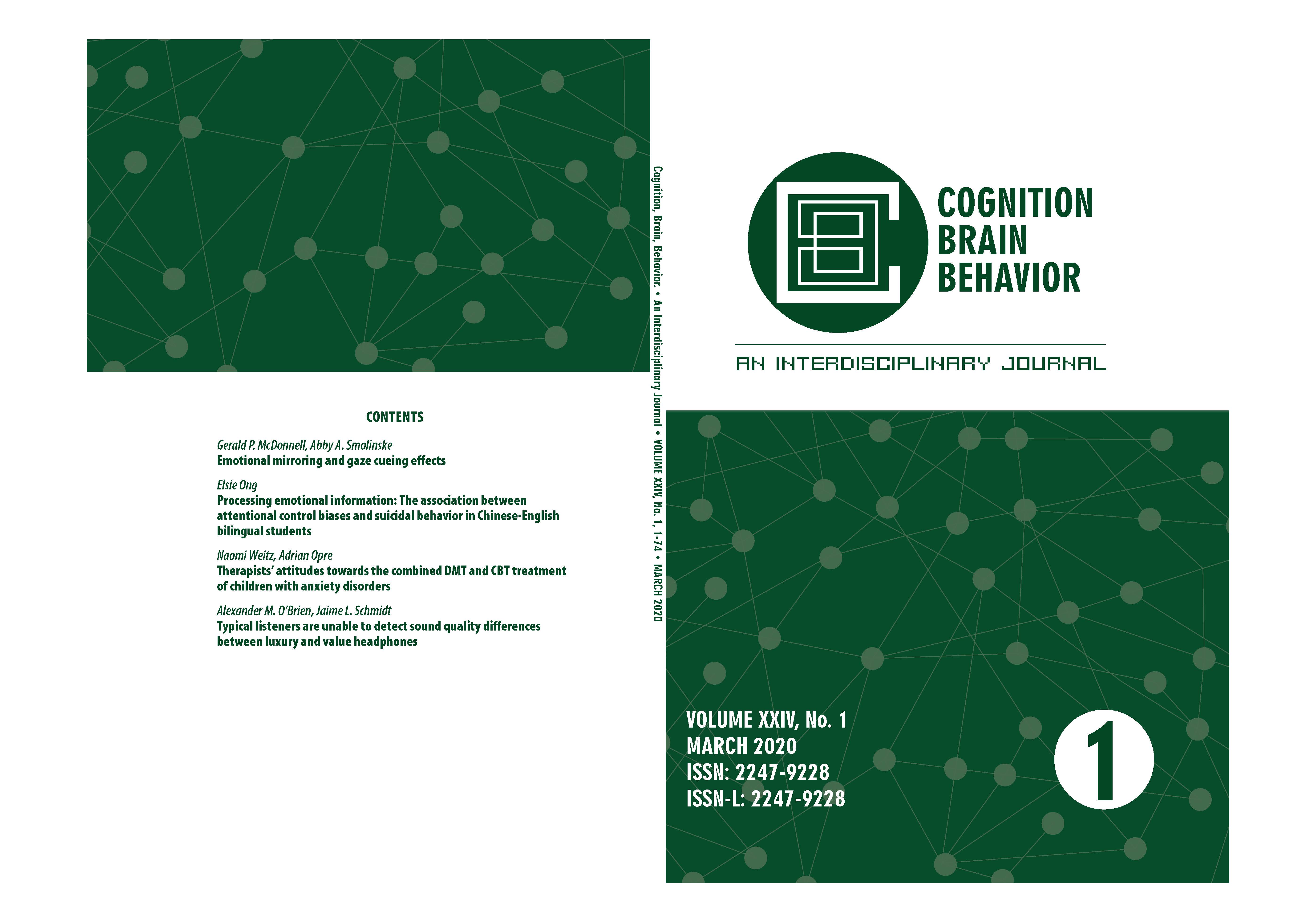Therapists' attitudes towards the combined DMT and CBT treatment of children with anxiety disorders
Therapists' attitudes towards the combined DMT and CBT treatment of children with anxiety disorders
Author(s): Naomi Weitz, Adrian OpreSubject(s): Theatre, Dance, Performing Arts, Fine Arts / Performing Arts, Cognitive Psychology, Clinical psychology, Behaviorism, Methodology and research technology
Published by: Editura Asociației de Științe Cognitive din România (ASCR)
Keywords: Cognitive Behavioral Therapy; Dance Movement Therapy; anxiety disorders; children; therapist’s attitudes;
Summary/Abstract: Anxiety disorders (ADs) are common among children. Cognitive behavioral therapy (CBT) is the most well-established treatment, but ADs can also be treated using nonverbal-indirect approaches, using expressive arts therapies’ such as dance-movement therapy (DMT). However, DMT and CBT lean on distinct theoretical assumptions and therefore are inherently different. Nevertheless, during the last decade, combining these approaches has been becoming more common. The present quantitative study is the second part of a mixed-methods research which began with qualitative interviews (study 1, see Weitz & Opre, 2019a). The aim of the quantitative study was to investigate therapists’ attitudes towards the combined effect of DMT and CBT on the treatment of children with ADs (regarding the efficiency of the treatment, their own efficacy, and actual use). The research paradigm is a quantitative design. The sample included 99 therapists divided into three groups, defined according to their qualifications and practice: DMT-only (n = 35), CBT-only (n = 42), and DMT combined with CBT (DMT+CBT) (n = 22). As hypothesized, the findings indicated, that: DMT+CBT and/or DMT-only therapists perceived the combination of DMT and CBT as more efficient than CBT-only therapists; DMT+CBT and/or CBT-only therapists perceived their efficacy as higher than DMT-only therapists; DMT+CBT and/or DMT-only therapists reported greater use of the combined treatment as compared to CBT-only therapists.
Journal: Cognition, Brain, Behavior. An Interdisciplinary Journal
- Issue Year: XXIV/2020
- Issue No: 1
- Page Range: 35-56
- Page Count: 23
- Language: English
- Content File-PDF

